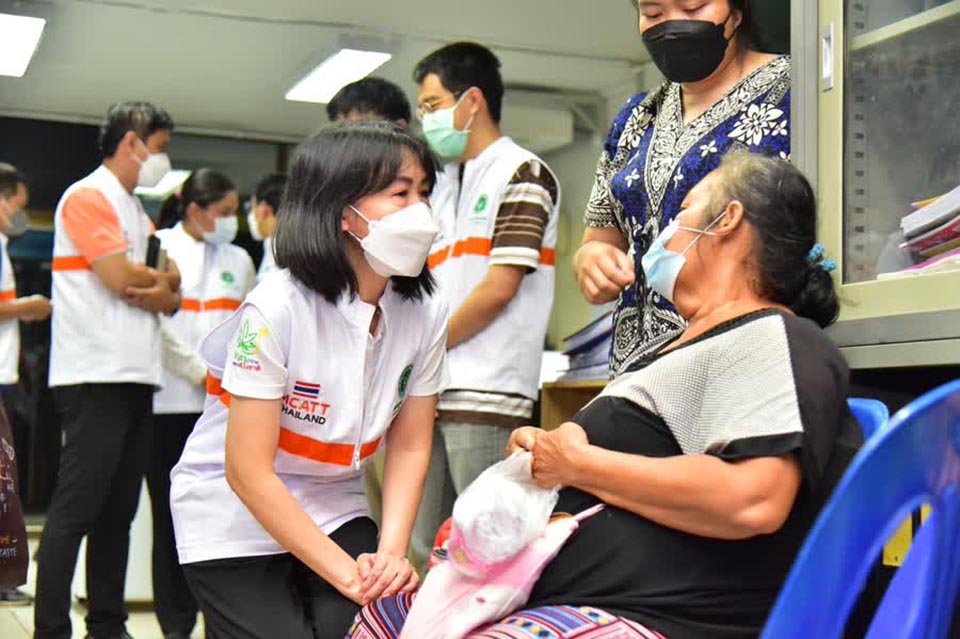
Mental health professionals have now been dispatched to remain at the side of families of victims of last week’s mass shooting in Nong Bua Lamphu. The Mobile Community Assertive Treatment teams (MCATTs) will deliver mental health care to those who lost loved ones for at least 3 months. The Department of Mental Health (DMH), meanwhile, aims to expand its care to include people who live in the locality affected by the tragedy.
DMH Director-General Amporn Benjaponpitak explained her agency’s framework for delivering mental health first aid to relatives of those who perished in the incident. She said care will be delivered in 3 phases. The first phase involves an immediate engagement with all 37 families, with an aim of engaging all individuals of each family within 2 weeks.
Dr. Amporn said there were 170 persons who were directly affected initially. With the situation having attenuated, this number has dropped to somewhat greater than 10 persons. Some individuals within this group are still severely saddened and unable to cope and may resort to self-harm. These individuals are already placed under care. The number of affected individuals who are unable to eat or sleep properly or who developed physical problems has risen by 10. All have already had sessions with a psychiatrist.
The DMH chief explained that close mental care is needed two weeks from now. During this period, the affected individuals are expected to enter a stage of isolated depression. All MCAT teams will remain in the area of the incident during this period. Mental health remedy centers will be set up around the community to make assistance convenient. Personnel at the centers will work proactively by making home visits. Once the 2-week period passes, care will continue to be provided over at least 3 months. Understanding will be created with local entities so these would help out with the mental rehab effort. Individuals with severe issues will need to continue receiving care from mental health professionals.
The director-general said there are 3 groups of affected individuals. The first comprises persons who have been directly affected, within which there are 60 minors. The second consists of people in Uthai Sawan subdistrict who are not direct relatives of the deceased or injured. The second group also includes 129 children from two schools in the locality of the incident. The DMH is deploying more resources to tend to said children. The third group comprises people who have been affected by consuming the news of the tragedy. (NNT)
 |
 |
 |





